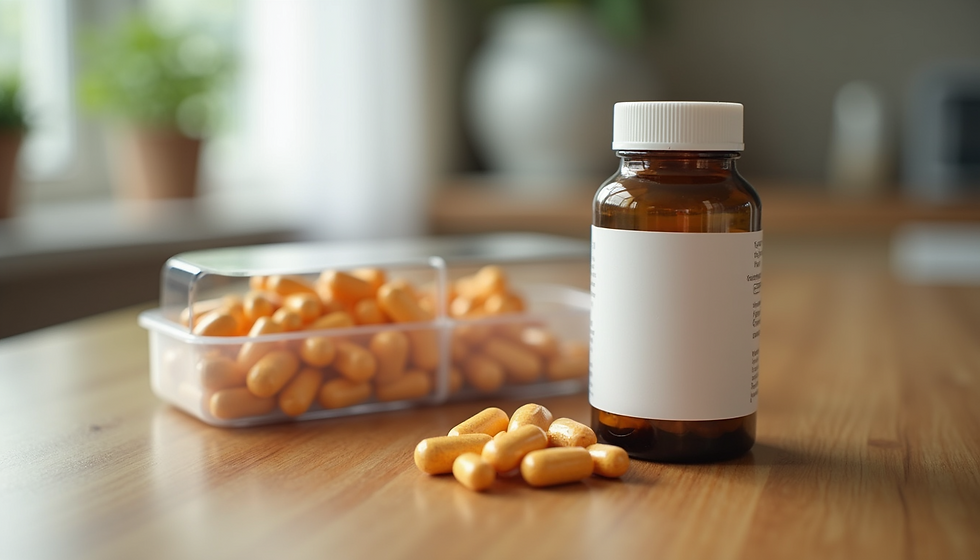Top Foods to Skip During Pregnancy for Optimal Health
- Anurag

- Jul 18, 2025
- 4 min read
Navigating through pregnancy is an exciting yet challenging time for many women. While anticipating the arrival of a new life, expectant mothers must also consider their diet carefully. Proper nutrition is essential for both the health of the mother and the developing baby. However, not all foods are beneficial during this critical period. In this blog post, we will explore pregnancy diet restrictions and highlight the top foods to avoid for optimal health.
Pregnancy Diet Restrictions
During pregnancy, a woman's body undergoes numerous changes. This transformation requires special attention to diet and nutrition. A healthy pregnancy diet not only nurtures the mother but also supports the baby's growth and development.
Certain foods can pose risks to both mother and child. They may contain harmful bacteria, chemicals, or compounds detrimental to health. Understanding pregnancy diet restrictions is crucial in ensuring a safe and healthy journey towards motherhood.

It is important for pregnant women to educate themselves on which foods to avoid. Here are several categories of foods that should be skipped during pregnancy for optimal health.
Unpasteurized Dairy Products
Unpasteurized dairy products are a significant source of potential harm during pregnancy. These products can harbor Listeria bacteria, which can cause severe infections in both mothers and babies. Listeriosis can lead to miscarriage, premature delivery, or severe illness in newborns.
Expecting mothers should always choose pasteurized options. This includes milk, cheese, and yogurt. Always check labels to ensure safety.

Raw or Undercooked Seafood, Meat, and Eggs
Consuming raw or undercooked seafood, meat, and eggs can increase the risk of foodborne illnesses. Toxoplasmosis, Salmonella, and other harmful pathogens can be found in these foods. These illnesses can pose significant risks during pregnancy, including growth restrictions and developmental issues for the fetus.
Opt for fully cooked seafood, meats, and eggs to ensure safety. Cooking these items thoroughly reduces the risk of harmful bacteria and protects both mother and baby.
Why Avoid Bananas During Pregnancy?
Though bananas are typically considered a healthy snack, they can lead to several issues during pregnancy. They contain high levels of potassium, which, while essential, can cause imbalances if consumed in large quantities. Additionally, some women may experience an increase in cravings for sweets during pregnancy, and relying too heavily on bananas could exacerbate blood sugar spikes.
Moderation is the key. Bananas can be a healthy part of the diet when consumed in reasonable amounts, but don't rely solely on them for nutrition.
Caffeine and Alcohol
Both caffeine and alcohol are substances pregnant women should limit or avoid altogether. Caffeine intake can lead to an increased heart rate, sleep disturbances, and dehydration. Furthermore, high caffeine consumption has been linked to an increased risk of miscarriage or low birth weight.
Alcohol poses an even greater risk. No known safe amount of alcohol exists during pregnancy. Fetal Alcohol Spectrum Disorders (FASDs) can occur due to alcohol exposure in utero, leading to lifelong developmental and health challenges for the child.
To ensure a healthy pregnancy, it is best to eliminate both caffeine and alcohol completely from the diet. Instead, focus on herbal teas and plenty of water to stay hydrated.

Processed Foods and Sugary Snacks
Pregnancy may lead to cravings for processed foods and sugary snacks, but these should be minimized. Processed foods often contain preservatives, unhealthy fats, and excess sugars that can lead to gestational diabetes and unhealthy weight gain.
Instead of reaching for chips or cookies, opt for whole grains, fruits, and vegetables. These not only provide essential nutrients but also help maintain energy levels throughout the day.
Actionable Recommendations
Educate Yourself: Knowledge is power. Familiarize yourself with foods to avoid during pregnancy to ensure both you and your baby are safe.
Plan Meals Ahead: Create a meal plan that focuses on healthy, whole foods. This preparation helps mitigate the temptation to grab unhealthy snacks on the go.
Consult with a Healthcare Professional: Before making any drastic changes to your diet, check with your doctor or a nutritionist. They can provide tailored advice based on your specific needs.
Stay Hydrated: Focus on drinking plenty of water and safe beverages. Staying hydrated is essential for overall health during pregnancy.
Incorporating these recommendations into your lifestyle will help ensure a healthy pregnancy.
By being mindful of your diet and the importance of avoiding certain foods, you can promote optimal health for yourself and your baby. For complete guidelines and further information, refer to resources on foods to avoid during pregnancy.
Navigating Food Choices for a Healthy Pregnancy
Pregnancy is a beautiful journey filled with many decisions about health, especially nutrition. Being aware of the necessary pregnancy diet restrictions can greatly impact the overall experience and health outcomes for both the mother and the baby.
By diligently avoiding harmful foods and making informed choices, expectant mothers can create a nurturing environment for their developing child. This journey significantly involves understanding which foods to sidestep and what nourishing alternatives can support optimal health throughout the pregnancy. Make informed choices for a healthy and happy pregnancy journey!








Comments